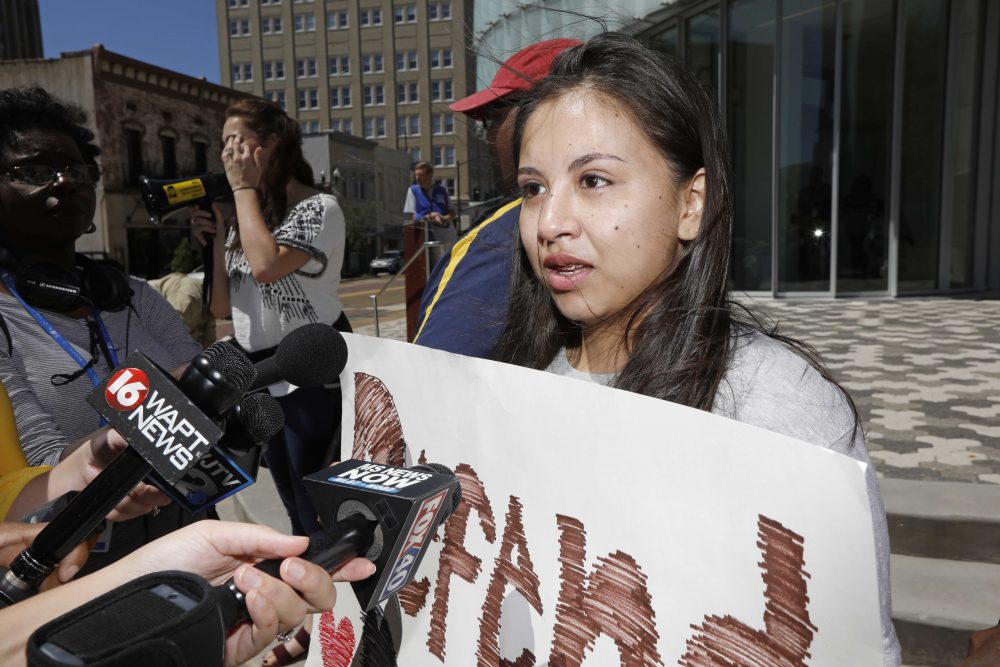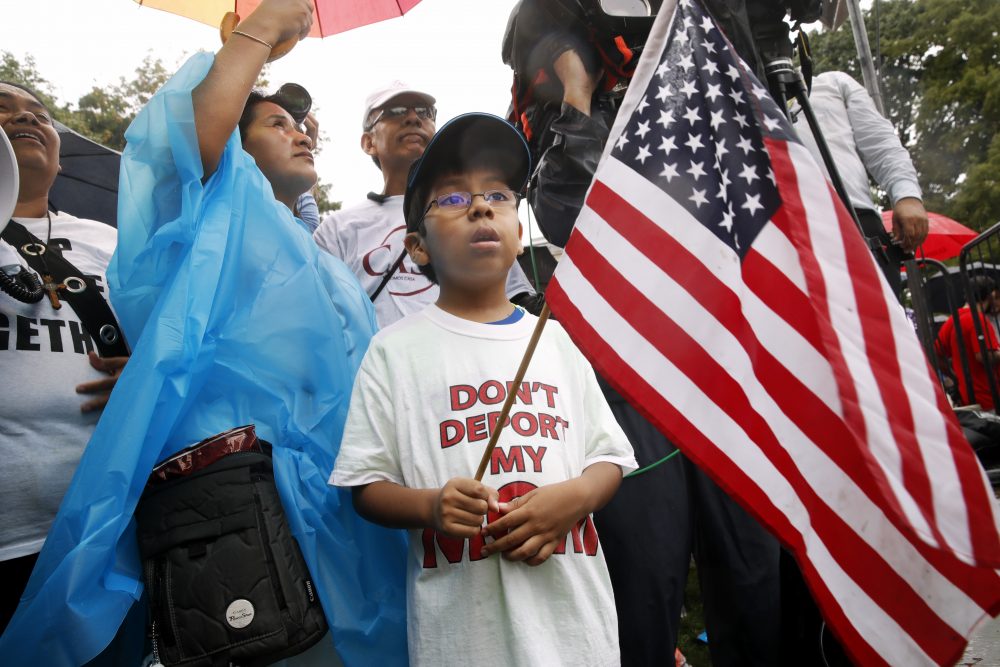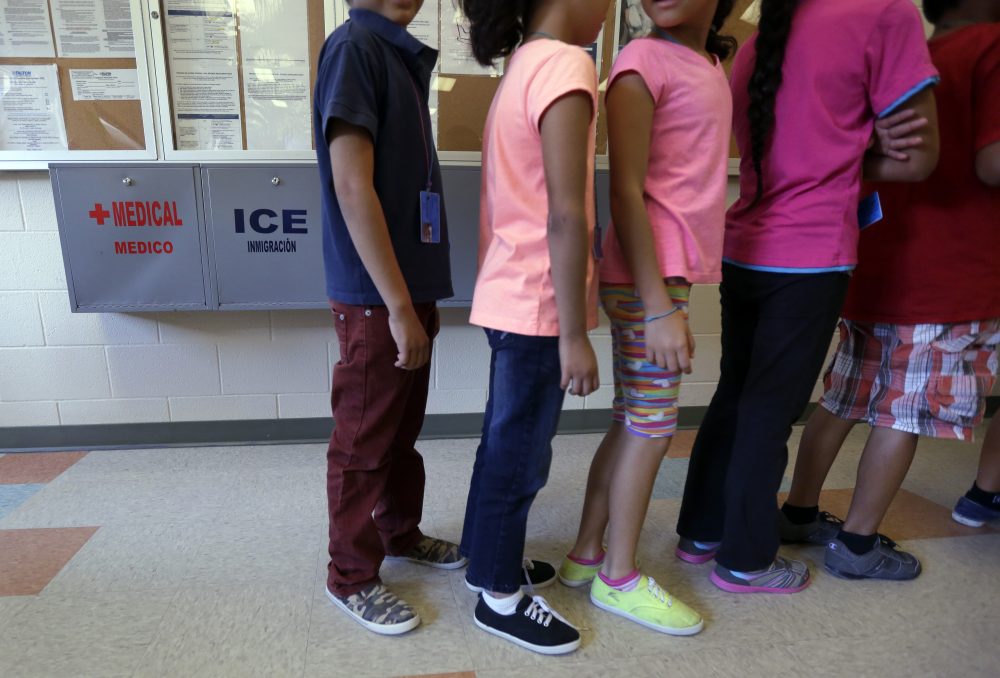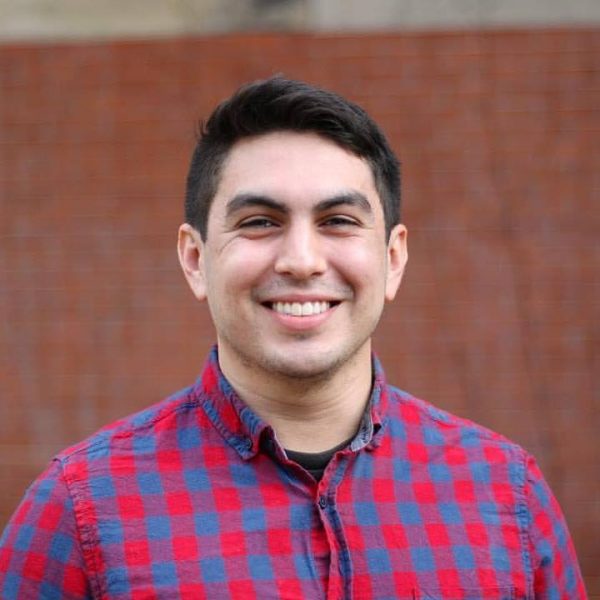Advertisement
COMMENTARY
Trump's Aggressive Immigration Policies Have Created A Public Health Disaster

A teenager we'll call "Amira" came to the U.S. with her family as a legal refugee, fleeing violence in her home country. She has major sensory deficits, has never been to school, and suffers from a myriad of medical conditions. Her father, a documented immigrant, brings her to appointments with one of us, Dr. Crosby, and relays his own observations and concerns, since she is unable to speak or write, and does not know sign language.
Her father, who works for a local business to support the family, was charged with a tax violation. One night recently, immigration officials entered the family’s home and arrested him in front of Amira. Her father described how Amira shook and whimpered, huddled in a corner. She has continued to show fear, anxiety and distress even though she cannot verbalize her feelings. Fortunately, her father was released. But the ordeal is not over.
We are seeing only the tip of the iceberg of public health disasters stemming from the Trump administration’s aggressive detention and deportation policies. Lower birth weights have been reported in Latina mothers affected by immigration raids, and a spike in adverse mental health symptoms has been reported in many immigrant communities. Immigrants are fearful of being targeted and are avoiding public benefits, including health care and food assistance. Fear of repercussions is resulting in a decrease in immigrants reporting crime, including domestic violence. The downstream social impact of community and family insecurity is detrimental to all of Massachusetts.

The recent media coverage of the wrenching arrest and detainment of El Salvadorian asylum-seeker Francisco Rodriguez graphically illustrates how local U.S. Immigration and Customs Enforcement is creating and inflaming a toxic environment of fear, pain and stress in our immigrant communities. With the Trump administration’s empowering of ICE, raids, arrests and detentions have risen sharply. Nationally, immigration arrests are up 38 percent; between Jan. 22 and April 29 of this year, 41,318 people were arrested. Across Massachusetts, a daily average of 531 immigrants remain in detention in the current fiscal year, our ICE Freedom of Information Act requests revealed. Seemingly indiscriminate and brutal treatment of immigrants has an impact on the well-being and safety of our communities.
An Office of Detention Oversight compliance report found that on Feb. 7, 2017, the Theo Lacy Facility in Orange, California, was already over capacity. The four ICE detention facilities in Massachusetts — with approximately 850 beds combined — are also reaching capacity. Under-resourced, overcrowded incarceration settings are conducive to violations of human rights, particularly the rights to health and legal representation.
Some deaths in ICE detention have been directly caused by substandard health care, according to reports by the American Civil Liberties Union and Human Rights Watch. The Human Rights Watch report identified three detainees who died by suicide “after demonstrating signs of serious mental health conditions … ” and concluded that “inadequate mental health care … significantly exacerbated their mental health problems.” Another detainee, Manuel Cota-Domingo, died of heart disease and untreated diabetes.
The ACLU report reviewed 24 randomly selected deaths in ICE custody from January 2010 to May 2012 and attributed eight to substandard care. An updated list of deaths of ICE detainees over the past few years includes 22 suicides, two electrocutions, two traumatic brain injuries, one drowning, one case of rabies and two deaths by “natural causes” at the ages of 25 and 36.
Advertisement

Aggressive ICE policies leave families and communities reeling from the loss of loved ones, and fearing for themselves. ICE director Thomas Homan, in a recent House Appropriations Committee meeting concerning the ICE budget, said, “ ... if you’re in this country illegally, and you committed a crime by entering this country, you should be uncomfortable, you should look over your shoulder, and you need to be worried … ”
The Trump administration has followed through on this rhetoric and officially rescinded the Deferred Action for Childhood Arrivals program, which protected from deportation 800,000 youth who arrived undocumented as children. The administration has also rescinded the Deferred Action for Parents of Americans and Legal Permanent Residents. The program would have allowed 5 million parents whose children are U.S. citizen to avoid deportation; those families are now at risk. When parents are detained and deported, thousands of their U.S.-citizen children may be lost in the foster care system, and reunifying these families may be almost impossible. Family division may especially devastate families with serious health concerns, like Amira’s.
We applaud the Massachusetts Supreme Judicial Court’s decision in Lunn v. Commonwealth, holding that Massachusetts courts and law enforcement officials — including sheriffs and police officers — do not have the authority to hold people based solely on immigration detainers. But Gov. Charlie Baker’s proposal on Aug. 1 to undermine that ruling and grant local law enforcement “flexibility” in detaining non-criminal immigrants is not only an ineffective policy, but harms the public health for everyone. We need stronger protections for all immigrants to lend a semblance of normalcy and peace to all Massachusetts communities. Actions should include universal access to legal representation for detained immigrants; increased and independent day-to-day oversight of ICE detention facilities; and advocacy in support of Senate Bill 1305 (the Safe Communities Act), in an effort to ensure safe access to health care and public services for all community members.
Health and human rights are inextricably linked. Upholding rights contributes to the mission of public health to improve the physical, mental and social health and well-being of populations. Immigrants, regardless of status, are an ingrained part of our communities across the commonwealth, and we must protect them. In her country, Amira didn’t stand a chance. Here, the possibility of unlocking her mind with education and health care is real. Hopefully, one day she will be able to tell me the story of her life.


